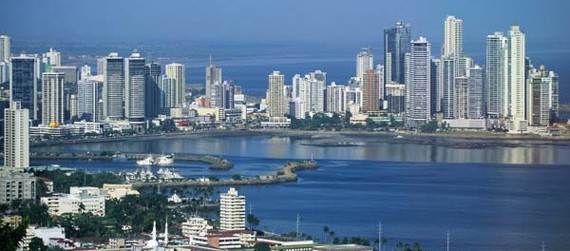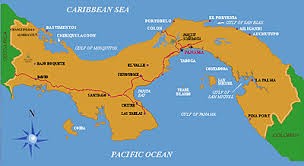
Panama Company Introduction
Panama offers many incorporation benefits. In 1927, Panama created the laws enabling the formation of corporations. Panama corporation law even used parts of the U.S. State of Delaware corporation laws. This is not unusual as Panama has had strong influence from the U.S. ever since the U.S. government assisted Panama in its independence from Colombia in 1903.

Panama IBC Flexibility
Panama corporations can conduct the same types of commercial and business activities as any corporation in the U.S., Canada, and the EU. They can own real estate and other assets, while limiting personal liabilities in the performance of corporate business activities. Panama corporations can purchase real properties, vehicles, yachts and other vessels, antiques, jewelry, minerals, commodities, and shares in other corporations worldwide. Every global government accepts the legitimacy of Panama corporations allowing them to open accounts in their banks, financial institutions, commodity & stock brokerages, owning real estate and physical properties in their countries.
There are over 350,000 corporations registered in Panama in 2017. Most of their owners and beneficiaries are non-resident foreigners who do not conduct any commercial business in Panama. Many use their companies for offshore banking by holding bank accounts in their company names. Some individuals and publicly traded firms have multiple Panama corporations and international investment accounts.

Panama Tax Haven Benefits
There are no taxes on Panama IBCs on activity performed outside of the country. So, many have used the Panama corporation for its tax benefits. Keep in mind that people in the US are taxed on worldwide income. So, whereas there may be tax benefits in Panama, you are strongly encouraged to have your accountant review your tax requirements, especially if you live in a country that taxes income regardless of its source.

Benefits of a Panama Corporation
Here is a list of Panama incorporation benefits:
- Asset Protection
The biggest reason why foreigners use Panama corporations is to protect their assets from lawsuits, government seizures, and home country regulations. Other countries civil lawsuit judgments or government tax assessments cannot be enforced against its corporations in Panama.
- No Taxes
Panama only taxes corporations and individuals on sources of income gained within Panama’s borders. This is known as “territorial” sources of income. Panama corporations conducting business outside of Panama are not taxed on their income or profits. This includes using the internet to reach out to global clients and be paid for services conducted inside Panama but delivered outside of its borders. For instance, if a person living outside of Panama goes to a Panama law firm’s website and orders the formation of a Panama corporation and receives the legal documents via email or international courier, there are no corporate or income taxes levied on the Panama law firm.
(a) Distribution of Earnings: A Panama corporation can distribute its earning through dividends or shares to its owners and beneficiaries tax-free when the total income was earned outside of Panama.
(b) Distribution of Assets: Panama corporations operating outside of Panama can distribute its assets to the shareholders exempt from taxes.
(c) Loans: Granting loans or providing lines of credit to debtors who reside outside of Panama are all tax-free.
(d) Maritime Income: Taxes are exempt when vessels registered in Panama earn income from international maritime commerce and trade by the vessel’s owners.
(e) Bank Interest: All interest paid by Panama banks to every account holder are exempt from all taxes. That means every Panama bank account owned by a Panama corporation is exempt from taxes for the earned interest.
- Fewer Government Regulations
One of the biggest complaints by corporation owners and shareholders are federal, state or province, and local government rules & regulations of their corporations.
In Panama, with the only exceptions being corporations providing public utilities services, owning banks, and selling insurance in Panama; the government will not approve, authorize or supervise a corporation’s formation, establishing or amending its Articles of Incorporation, or its normal business activities. No notice to or approval from the government are required for a Panama corporation to distribute its dividends, issue or transfer its shares, modify its authorized capital, dissolve the corporation, or wind up by selling its assets.
Only corporations conducting business within Panama’s borders are obligated to file financial reports or statements of income & profits. Panama corporations exclusively conducting all of its business outside of Panama’s territory are not required to file income tax forms or report any income to the government.
Panama corporation information is confidential. There is no requirement to register or provide confidential information to the government. The shareholders and trustees names, financial statements, or corporate resolutions and meeting minutes issued by the Board of Directors and Shareholders do not have to be provided to the government. The only exception is when a judicial court issues a court order for information while investigating crimes by the corporation or the corporation is being sued in a civil court.
- Confidentiality
Panama laws make it a crime for any employee who discloses a client’s corporate information of any type. Panama banks are also subject to criminal prosecution for disclosing account holders’ information including verifying if they even have an account.
- Bearer Shares
Corporate shares can be issued in the anonymous name “Bearer” meaning whoever possess the share certificates is the owner. However, a recent law requires the deposit of the bearer shares with an authorized custodian which could be the corporation’s registered agent, a Panama bank or brokerage company, a panama lawyer, or trustee.
- Personal Corporations
The law allows for one person to own a corporation with just one shareholder. In addition, a corporation can be the sole shareholder of another corporation.
- Few Corporate Meetings
The Board of Directors and Shareholders can conduct meetings anywhere in the world without ever having to meet in Panama. Meetings can occur via internet video, phone calls, or by fax. As long all of the Shareholders and Board of Directors participate either personally or by proxy (if the Articles of Incorporation allows) with majority consent approving all resolutions. The Articles of Incorporation will provide the required number and manner of meetings, prior notice to participants, and requirements for approving resolutions.
- Easily Manage Corporate Business
Panama law requires a minimum of three Board of Directors and Corporate Officers (President, Secretary and Treasurer) who can be the same Board of Directors members.
The law provides a lot of authority and powers for the Board of Directors to conduct all necessary corporate business. This includes appointing and replacing the corporate officers, filing & defending lawsuits, owning or renting assets, opening financial accounts, incurring debts, and entering into contracts.
Panama Corporation Conclusion
Panama incorporation benefits include global asset protection, anonymous ownership, confidentiality, and no taxes. It also includes less government involvement and the same privileges that corporations enjoy when doing business in other countries.






